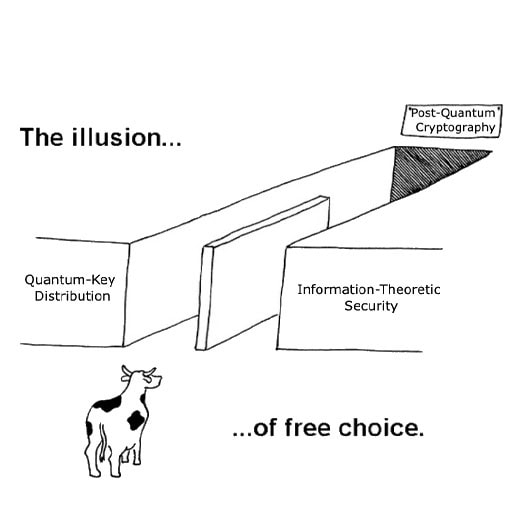The technological landscape is evolving faster than ever, with four key innovations leading the charge: Quantum Computing, Artificial Intelligence (AI), Blockchain, and Cybersecurity. These aren’t just independent breakthroughs, they are deeply interconnected, influencing and accelerating one another in ways that are reshaping industries and redefining digital trust, security, and efficiency.
Each of these technologies has the power to be revolutionary, but their convergence is where the true transformation lies. Understanding their relationships is critical for businesses, governments, and individuals preparing for the future.
Quantum Computing: The Ultimate Disrupter
Quantum computing has moved beyond theoretical research and into real-world development. Companies like IBM, Google, and IonQ are achieving milestones in qubit stability and error correction, while governments worldwide are investing in quantum research to maintain technological dominance.
Quantum computing’s primary advantage is its ability to solve complex problems exponentially faster than classical computers. This could revolutionise many fields, from material science & pharmaceuticals by simulating molecules to accelerate drug discovery, to optimisations of logistics, supply chains and financial models.
However, quantum computing also interacts with the other horsemen in critical ways.
With blockchain and cybersecurity, quantum computers are a disrupter as much as they are an enhancer.
Quantum computers threaten blockchain by potentially breaking the cryptographic signatures securing digital assets, but they can also be used to power blockchain, utilising the laws of quantum mechanics to create a more powerful and secure blockchain. Quantum computers can also be utilised by providing faster hashing and improvements to smart contracts via new algorithms, making blockchain faster and more secure and efficient.
The impact on cybersecurity is similar to blockchain, both forcing it to change and providing new pathways for innovation, such as distributing quantum-protected encryption keys – Quantum Key Distribution (QKD). To some degree, quantum computers are like a “great filter” for these sectors, forcing them to evolve by threatening extinction for sectors who don’t adopt new measures.
On the AI side of things, it’s mostly a positive impact. By utilising quantum-powered neural networks, AI can become significantly more powerful, potentially leading to the next stage of AI that classical computers aren’t capable of achieving. It can also threaten the security and integrity of AI training data, but I’d argue it’s more of a cybersecurity disruption than AI.
Rather than viewing quantum purely as a threat, industries must prepare for a hybrid future where quantum and classical computing coexist, leveraging quantum’s strengths while mitigating its risks by adopting post-quantum cryptography and other security measures, such as QKD.
Artificial Intelligence: The Cognitive Engine of the Future
AI is no longer an emerging technology, it’s an essential one. The explosion of generative AI, large language models (LLMs), and agentic AI has already transformed industries. However, we are just scratching the surface of AI’s capabilities.
What makes AI one of the four horsemen is its ability to automate one of the most complex aspects of nature: human ingenuity.
The rise of Agentic AI, multimodal models, and self-improving systems is reshaping how we interact with data, automate processes, and even make decisions, something that was long thought to be safe from automation. It can also personalise user experiences in unprecedented ways, from AI-driven assistants to real-time risk assessment.
Like quantum, AI has a mixed impact on the other horsemen. When it comes to quantum, for example, it’s mainly positive as it can enhance error corrections and improve qubit stability. It can also reduce noise and improve qubit readouts. Quantum computers face many challenges in that area, and AI might be just what they need to conquer these hurdles and become commercially viable.
When it comes to blockchain and cybersecurity, it’s more nuanced. On one hand, AI can help with real-time threat and fraud detections, perform security auditing and find vulnerabilities and suggest patches. On the other hand, AI can also increase the chances of a successful breaking encryption keys or digital signatures via differential attacks, putting symmetric keys at risk of compromise. That type of threat is yet to be properly investigated and countered, as post-quantum cryptography is focusing on asymmetric cryptography while differential attacks threaten the symmetric keys. Another effect of AI that is related to cybersecurity is AI enabled scams and deepfakes, that make it significantly harder for people to differentiate legitimate information from malicious scams. At the same time, AI can also be used to counter these very same threats in an arms-race of capabilities.
AI’s potential is immense, but so are its risks. The rapid development of autonomous AI agents, differential attacks and deep fakes poses security concerns, and the rise of AI-powered cyberattacks requires constant vigilance. AI must be managed responsibly to avoid becoming a double-edged sword.
Blockchain: The Digital Trust Revolution
Initially popularised by Bitcoin, blockchain has evolved far beyond cryptocurrency. As a decentralised, tamper-proof ledger system, blockchain is being adopted to many other use cases, including in current sectors like supply chain tracking or document signing, to emerging areas by potentially removing intermediaries from financial transactions (decentralised financed, or DeFi) or critical infrastructure like digital identities to reduce reliance on central database.
Unlike AI and Quantum, blockchain’s impact on the other sectors is less straightforward and mixed. Taking an honest look, blockchain’s main negative impact is on itself, with scams, vulnerabilities and other issues. But this article focuses on the impact the horsemen have on each other.
At a first glance, it’s not that straightforward what impact blockchain has on quantum computers, but one example of blockchain helping quantum computers is with data stability and immutability. Qubits are inherently unstable, and their data will need to be recorded in a secure and stable manner. Blockchain can be of assistance in that department, providing a great way to store the information that quantum computers generate, especially when it’s related to ownership.
Blockchain enhances cybersecurity by providing decentralised, tamper-resistant data storage, reducing reliance on vulnerable centralised systems. Its immutability prevents unauthorised data modifications, while decentralised identity frameworks mitigate credential theft. Blockchain-powered DNS resists DDoS attacks and hijacking, and smart contract-based authentication eliminates password vulnerabilities. In IoT security, blockchain enforces trust and device authentication, reducing attack surfaces. Additionally, it ensures supply chain integrity by creating verifiable audit trails. As quantum threats emerge, blockchain can integrate post-quantum cryptography (PQC) to maintain resilience, future-proofing data security in the face of advancing computational power.
With AI, blockchain can help by ensuring data integrity, transparency, and trust in machine learning models. It provides a tamper-proof ledger for training data, preventing data poisoning and unauthorised alterations. Smart contracts enable verifiable AI decision-making, reducing bias and ensuring accountability. Federated learning on blockchain allows secure, privacy-preserving AI model training across multiple parties without exposing sensitive data. Additionally, blockchain helps verify the authenticity of AI-generated content, combating deep fake threats. As AI systems become more autonomous, blockchain can enforce ethical guidelines and access controls, ensuring responsible and secure AI deployment.
Blockchain is poised to be a game-changer in cybersecurity, AI, and quantum computing by addressing some of their biggest challenges. In cybersecurity, its decentralised nature eliminates single points of failure, making data breaches and tampering far more difficult. For AI, blockchain brings much-needed transparency and integrity, preventing data manipulation and ensuring accountability in automated decision-making. When it comes to quantum computing, blockchain could be the key to securing the quantum era, enabling quantum-resistant encryption and verifiable quantum computations. As these technologies evolve, blockchain will be essential in building a more secure, trustworthy digital future.
Cybersecurity: The Last Line of Defence
Cybersecurity is shifting from reactive defence to proactive resilience, leveraging AI, blockchain, and post-quantum techniques to safeguard data, infrastructure, and individuals. AI-driven security enables real-time threat detection through machine learning, while zero-trust architectures eliminate reliance on traditional perimeter-based defences. With the rise of quantum computing, Post-Quantum Cryptography (PQC) is becoming essential to protect encryption from future quantum attacks, ensuring long-term security in an increasingly complex digital landscape.
Unlike the other 3 horsemen, cybersecurity is not a technology per se, but the concept of security in technology. The reason it’s included as a horseman is because it’s the glue holding the other 3 sectors together; without cybersecurity, all the other sectors won’t be able to properly function. That said, cybersecurity can still cause pain for companies improperly utilising it, especially in areas where performance is crucial,
Quantum computing presents significant opportunities for cybersecurity, particularly in strengthening encryption techniques. With the potential to break traditional cryptographic methods, quantum computing also drives the development of Post-Quantum Cryptography (PQC), which will secure digital data for the quantum era. Cybersecurity is working to protect systems from these quantum threats by developing cryptographic algorithms that are resistant to quantum attacks, ensuring data remains secure as quantum technology advances. Cybersecurity will be crucial to ensure that the quantum hardware, algorithms and generated data all stay secure from hacking, tampering or other types of malicious intervention.
However, the shift to PQC comes with its own set of challenges, such as increased complexity and costs. Transitioning to quantum-resistant encryption systems requires significant investment in new cryptographic protocols and infrastructure. Organisations must ensure their current systems are compatible with PQC, and this transition can lead to increased operational costs, especially as businesses need to train personnel and update legacy systems. Despite the challenges, this shift to post-quantum cryptography ensures a future-proofed cybersecurity landscape. Businesses and governments that invest in quantum-safe encryption now will have a long-term advantage in protecting sensitive data against emerging quantum threats.
AI is revolutionising cybersecurity by enabling advanced threat detection and response. AI-powered systems can analyse vast amounts of data in real time, identifying potential threats faster than human teams could. These systems can autonomously patch vulnerabilities, detect fraud, and even predict future attacks, significantly improving the resilience of digital infrastructures.
But as AI becomes a larger part of cybersecurity, it also introduces new risks. AI-driven surveillance and monitoring systems can raise concerns about personal privacy. While AI can enhance security, it also requires continuous data collection, which can lead to ethical issues around data rights and privacy. Striking the right balance between security and privacy remains an ongoing challenge. On the positive side, AI significantly enhances the ability to detect and mitigate threats in real time. By using machine learning, AI can improve security measures faster and more accurately, identifying patterns and anomalies that would otherwise go unnoticed. This capability makes AI an invaluable tool for preventing cyberattacks before they occur.
Cybersecurity plays a crucial role in shaping the future of blockchain, both enhancing its potential and introducing challenges. On the positive side, strong cybersecurity measures help protect blockchain networks from hacks, fraud, and data breaches, ensuring the integrity of decentralised finance (DeFi), supply chain tracking, and digital identity systems. Secure cryptographic practices and post-quantum encryption also future-proof blockchain against emerging threats. However, cybersecurity constraints can slow blockchain adoption due to strict compliance requirements, high security costs, and regulatory uncertainties. Additionally, cybersecurity vulnerabilities in smart contracts, private keys, and centralised exchanges pose risks, potentially undermining trust in blockchain applications. While cybersecurity strengthens blockchain’s reliability, balancing security with decentralisation remains a key challenge for its widespread adoption.
The Future is Converging, Are We Ready?
The rapid evolution of Quantum Computing, AI, Blockchain, and Cybersecurity is not happening in isolation. These technologies are shaping each other, accelerating innovation, and redefining the foundations of trust, security, and digital transformation.
While each brings revolutionary potential, it is in their convergence that we see both the greatest opportunities and the most pressing challenges. Quantum computing forces us to rethink encryption and data security. AI amplifies both the capabilities and risks of cyber defence. Blockchain offers decentralisation but must navigate security vulnerabilities. Cybersecurity ties everything together, ensuring that these innovations remain resilient, ethical, and sustainable.
The question is no longer whether these technologies will change industries, but how well we adapt to their convergence. Organisations that embrace this shift by integrating post-quantum security, leveraging AI for cyber resilience, and utilising blockchain for trust and transparency, will be the ones that thrive in the coming decade.
The four horsemen are here, not as independent disruptors, but as forces shaping a new digital frontier. The only question that remains: will we harness them, or be left behind?









